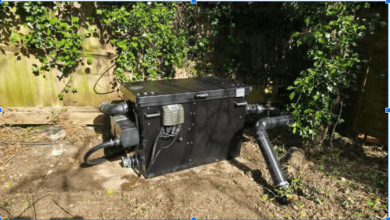What to Look for in Professional Moving Services in Norfolk and Beyond

Moving can be a real headache, especially if you don’t know what to look for in a moving company. If you’re in Norfolk or anywhere in Virginia, finding the right movers is key to making your move smooth and stress-free. With so many options out there, it’s important to know what qualities to prioritize. This guide will help you identify the essential traits of reliable movers in Virginia, understand estimates, and find the right services for your needs.
Key Takeaways
- Check for a solid reputation to avoid scams.
- Get multiple estimates to gauge fair pricing.
- Ensure the movers have experience with your specific type of move.
- Look for good customer service and a clear complaint resolution process.
- Consider insurance options and safety protocols to protect your belongings.
Key Qualities Of Reliable Movers In Virginia
A Good Reputation
A solid reputation is non-negotiable when choosing movers. It doesn’t matter if they’re a small local business in Norfolk or a big national company. You want to see positive feedback and a history of satisfied customers. Watch out for those red flags – they’re red for a reason! Dig around online, check with the Better Business Bureau, and see what other people are saying. A company’s reputation is often the best indicator of the service you’re likely to receive.
Experience With Your Type Of Move
Not all moves are created equal, and neither are movers. A company that’s great at moving apartments across town might not be the best choice for a long-distance move or if you have specialty items like a piano. Make sure the movers you choose have specific experience with the type of move you’re planning. Don’t be afraid to ask about their past experience and any specific training their team has.
Dispute Resolution Process
Even with the best movers, things can sometimes go wrong. It’s how a company handles those hiccups that really matters. A reliable moving company should have a clear and fair process for resolving disputes. If they have a history of ignoring customer complaints or failing to address issues, that’s a major warning sign. You want to know that if something goes wrong, they’ll be responsive and work to find a solution.
It’s important to remember that moving can be stressful, and even the most careful movers can encounter unexpected challenges. A good dispute resolution process shows that the company is committed to customer satisfaction and willing to take responsibility when things don’t go as planned.
Understanding Moving Estimates
Importance Of Multiple Estimates
Getting just one estimate for your move is like only reading one review before buying something online – you’re not getting the full picture. It’s really important to get several estimates from different moving companies. This lets you compare costs, services, and the overall vibe of each company. Each mover assesses your stuff differently, so prices can vary a lot. Getting multiple quotes helps you spot any lowball offers that might seem good at first but could end up costing you more later with hidden fees. It also gives you leverage to negotiate and potentially get a better deal.
Factors Influencing Moving Costs
Lots of things affect how much your move will cost. Here’s a quick rundown:
- Distance: The farther you’re moving, the more it’ll cost, mainly because of fuel and time.
- Weight/Volume: The more stuff you have, the more you’ll pay. Movers usually charge based on the weight or cubic feet of your belongings.
- Packing Services: If you want the movers to pack everything for you, that’s extra. Full-service packing is convenient but adds to the bill.
- Special Items: Moving pianos, antiques, or other bulky or fragile items requires special care and equipment, which increases the cost.
- Stairs/Elevators: If movers have to navigate stairs or elevators, it can take more time and effort, leading to higher charges.
- Time of Year: Moving during peak season (summer) or at the end of the month is usually more expensive because movers are in high demand.
- Insurance: The type and amount of insurance coverage you choose will also affect the total cost.
What To Expect In An Estimate
When you get a moving estimate, it should include a few key things. First, make sure it clearly states whether it’s a binding or non-binding estimate. A binding estimate guarantees the total cost of the move, while a non-binding estimate is just an approximation and can change. The estimate should also list all the services included, like packing, loading, transportation, and unloading. It should detail any extra charges for things like stairs, long carries, or special items. Finally, check the fine print for any disclaimers or conditions that could affect the final price. Don’t be afraid to ask questions and get clarification on anything you don’t understand. Here’s a sample table of moving costs based on home size:
| Home Size | Avg. Total Cost | Cost/hour | # of Movers | # Hours |
| Studio | $345 | $125 | 2 movers | 3 hours |
| 1 Bedroom | $470 | $125 | 2 movers | 4 hours |
| 2 Bedroom | $742 | $174 | 3 movers | 5 hours |
| 3 Bedroom | $1,684 | $244 | 4 movers | 8 hours |
| 4 Bedroom | $1,928 | $244 | 4 movers | 9 hours |
| 5+ Bedroom | $2,956 |
Understanding the estimate is half the battle. Take your time, read everything carefully, and don’t hesitate to ask questions. A good moving company will be transparent and happy to explain all the details.
Services Offered By Professional Movers
When you’re looking at professional moving services, it’s easy to think they just load up a truck and drive. But actually, a lot of movers offer a whole range of services that can make your life way easier. It’s worth knowing what’s out there so you can pick what you really need.
Packing And Unpacking Services
Packing is the worst, right? Good news: many movers will do it for you. They’ll bring the boxes, the tape, the bubble wrap – the whole shebang. Some even offer “white glove” packing, where they’re extra careful with your fragile stuff. Unpacking services are also available; they’ll put everything where it needs to go, so you don’t have to live out of boxes for weeks. It costs extra, but it can be a lifesaver.
Storage Solutions
Sometimes, you need to store your stuff, either before, during, or after a move. Maybe your new place isn’t ready yet, or you’re downsizing. Lots of moving companies have storage facilities. These can be short-term or long-term, and climate-controlled options are often available for sensitive items. Make sure to ask about security and access to your belongings while they’re in storage.
Specialty Item Handling
Got a piano? A massive antique armoire? A hot tub? These things aren’t easy to move. Many movers specialize in handling bulky, delicate, or high-value items. They’ll have the right equipment and know-how to get them safely from point A to point B. This might include custom crating, specialized padding, and extra insurance. Don’t try to move that grand piano yourself – trust me, it’s not worth it.
It’s important to get a clear understanding of what services are included in your moving estimate. Don’t assume anything. Ask about extra fees for things like stairs, long carries, or appliance disconnection. A good moving company will be upfront about all costs, so there are no surprises on moving day.
Customer Service And Support
Customer service can make or break your moving experience. It’s not just about getting your stuff from point A to point B; it’s about how the company treats you throughout the process. A good moving company understands this and invests in its customer support infrastructure.
In-House Customer Service
Ideally, you want a moving company with an in-house customer service team. This usually means the people you’re talking to are directly employed by the company, not outsourced. This can lead to better communication and accountability. They should be knowledgeable about the company’s policies, services, and procedures. If they can’t answer your questions directly, they should know who can and get back to you promptly. I once used a company where every time I called, I spoke to someone different who had no idea about my move. It was a nightmare!
Communication During The Move
Clear and consistent communication is key during a move. From the initial estimate to the final delivery, you should be kept in the loop. This includes updates on the moving schedule, any potential delays, and the location of your belongings. The company should be easy to reach by phone, email, or even text. Proactive communication is a great sign. If they’re reaching out to you before you have to call them, that’s a good indication they care about your experience.
Handling Complaints Effectively
No matter how careful a moving company is, things can sometimes go wrong. Items can get damaged, or delays can happen. What matters is how the company handles these situations. A good moving company will have a clear and fair process for addressing complaints. They should be responsive, willing to investigate the issue, and offer a reasonable solution. Don’t be afraid to ask about their complaint resolution process before you hire them. It’s better to know what to expect upfront.
It’s always a good idea to document everything. Keep records of all communication, take photos of your belongings before the move, and note any existing damage. This will be helpful if you need to file a claim later on.
Safety And Insurance Considerations
Insurance Coverage Options
Okay, so you’re trusting these movers with basically your whole life packed into boxes. It’s smart to think about what happens if something gets damaged or goes missing. Movers are required to offer a basic level of protection, often called “released value protection.” This is usually pretty minimal, like 60 cents per pound per item. So, if your super expensive TV gets wrecked, you’re not getting much back.
That’s why it’s a good idea to look into additional coverage options. Here are a few:
- Full Value Protection: This is more comprehensive. If something is damaged, the mover will either repair it, replace it, or offer a cash settlement for the current market value.
- Third-Party Insurance: You can also get insurance from a separate company that specializes in moving insurance. This might offer broader coverage or better rates than what the mover offers.
- Check Your Existing Policies: See if your homeowner’s or renter’s insurance covers your belongings during a move. Sometimes they do, but there might be limitations.
Safety Protocols During Moves
Moving day can be chaotic, but a good moving company will have safety procedures in place to protect both your stuff and their workers. Experienced movers know how to properly lift heavy items, navigate stairs, and load the truck to prevent damage.
Here are some things to look for:
- Proper Equipment: Do they use dollies, straps, and blankets to protect furniture?
- Experienced Crew: Are the movers trained in safe lifting techniques?
- Clear Communication: Do they communicate clearly about how they’ll handle specific items?
- Careful Driving: A safe move also depends on the driver. Ask about their safety record and how they ensure items are secure during transit.
Protecting Your Belongings
Beyond insurance and safety protocols, there are things you can do to protect your belongings during a move.
- Inventory: Create a detailed inventory of everything you’re moving, with photos or videos. This will be helpful if you need to file a claim later.
- Pack Carefully: Use plenty of packing material, like bubble wrap and packing peanuts. Clearly label boxes with their contents and destination room.
- Valuables: Keep valuable items like jewelry, important documents, and medications with you. Don’t pack them in the moving truck.
It’s easy to get caught up in the excitement of moving, but taking a few extra steps to protect your belongings can save you a lot of headaches down the road. Don’t be afraid to ask movers about their safety procedures and insurance options. A reputable company will be happy to answer your questions and provide documentation.
Local Versus Long-Distance Moving
Moving across town is pretty different than moving across the country, and the moving services you need will reflect that. It’s not just about distance; it’s about the whole process.
Differences In Services Offered
Local movers usually focus on hourly rates and getting the job done quickly. They might not offer the same level of packing or specialty services as long-distance movers. Long-distance moves often involve more comprehensive services, like:
- Detailed inventory tracking
- Custom crating for fragile items
- Guaranteed delivery dates
Long-distance movers also have to deal with regulations that local movers don’t, like interstate commerce laws.
Cost Considerations
Local moves are often priced by the hour, plus the cost of supplies. The final bill depends on how long the move takes. Long-distance moves, on the other hand, are usually based on weight and distance. This means the heavier your stuff, and the farther it’s going, the more you’ll pay.
Here’s a quick comparison:
| Factor | Local Move | Long-Distance Move |
| Pricing | Hourly | Weight and Distance |
| Distance | Short | Long |
| Insurance | Basic Coverage | More Comprehensive Options |
| Service Options | Fewer | More |
It’s important to get a clear, written estimate from any mover, but it’s especially important for long-distance moves. Make sure you understand what’s included in the price and what could cause it to change.
Choosing The Right Movers For Your Move
Think about what you need. If you’re just moving a few blocks, a local mover is probably fine. But if you’re moving to another state, you’ll want a company with experience in long-distance moves. Consider these points:
- Distance: How far are you moving?
- Services: Do you need packing, unpacking, or storage?
- Budget: How much can you afford to spend?
- Reviews: What are other people saying about the company?
Researching Movers In Virginia
Finding the right moving company can feel like a huge task. There are so many options, especially when you start searching for “moving companies near me” or “movers in virginia”. It’s important to do your homework so you don’t end up with a bad experience. Here’s how to approach researching moving companies, particularly if you’re looking at “moving companies norfolk va”.
Online Reviews And Ratings
Online reviews are a great place to start. Check out sites like Yelp, Google Reviews, and the Better Business Bureau. Pay attention to the overall rating, but also read through the individual reviews to get a sense of what people liked and disliked. Look for patterns – are there recurring complaints about damaged items, late arrivals, or hidden fees? Also, see how the company responds to negative reviews. A company that addresses concerns professionally is a good sign.
Referrals From Friends And Family
Word-of-mouth referrals can be super helpful. Ask your friends, family, and coworkers if they have any recommendations. Personal experiences are often more reliable than online reviews because you know the person giving the referral. Plus, they can give you specific details about their move and the company they used.
Industry Certifications And Affiliations
Look for moving companies that have industry certifications and affiliations. For example, membership in the American Moving & Storage Association (AMSA) shows a commitment to professional standards. These certifications often require companies to adhere to a code of ethics and have certain levels of insurance coverage. It’s an extra layer of assurance that you’re working with a reputable company.
Taking the time to research moving companies is worth it. It can save you a lot of stress and money in the long run. Don’t just go with the first company you find. Compare several options, read reviews, and ask for referrals. A little bit of effort upfront can make a big difference in how smoothly your move goes.
Wrapping It Up
Choosing the right moving service in Norfolk or anywhere else doesn’t have to be a headache. Just remember to check their reputation, see how they handle problems, and make sure they have experience with the type of move you need. Getting a few estimates can really help you figure out what a fair price looks like. With the right movers, you can make your next move a lot smoother and less stressful. So take your time, do your research, and you’ll find a team that fits your needs perfectly.
Frequently Asked Questions
What should I check before hiring movers in Norfolk?
Look for a good reputation, experience with your type of move, and how they handle problems.
Why is it important to get multiple moving estimates?
Getting several estimates helps you understand the fair price for your move and compare services.
What factors can affect the cost of my move?
The distance of your move, the size of your belongings, and any extra services you choose can all influence the cost.
What services do professional movers usually offer?
Most movers provide packing and unpacking, storage options, and special care for fragile items.
How can I find trustworthy moving companies in Virginia?
You can read online reviews, ask friends for recommendations, and check for industry certifications.
What should I know about moving insurance?
Insurance can protect your belongings during the move. It’s important to understand the coverage options available.






